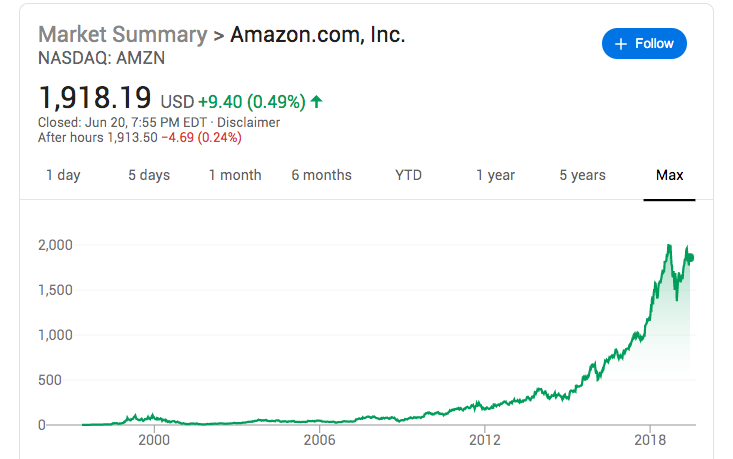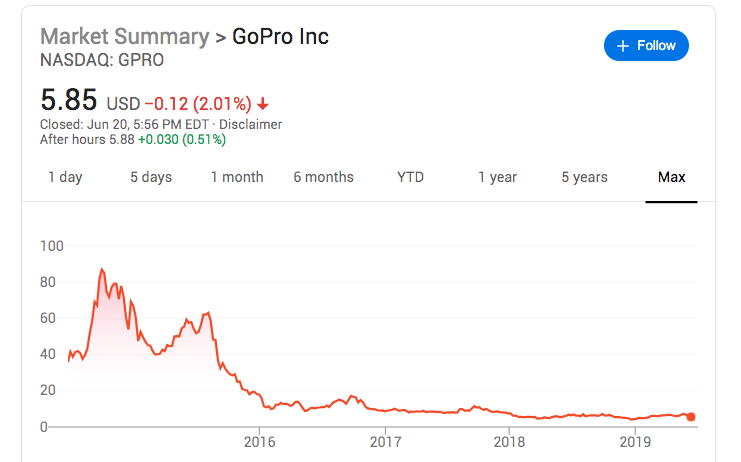

How to Sell Your Investment Property
Sometimes you need to sell your investment property. Perhaps its to pay off debt, to raise cash, or because of some other circumstance. Whatever the case, there are a few things that you should consider when deciding how to sell your property. Here are the most important:
Determine the Value the Investment Property
Depending on what type of investment property you have, you should be able to come up with a valuation fairly easily, or at least come up with a range for the valuation. Assuming you know a little about the real estate market, you’ll know that different properties are valued based on different valuation methods. For example, a single family home is valued by looking at comparable sales and by looking at assessed and appraised values. However, an income property, which is a property that is purchased primarily for its ability to earn money each month, is typically valued based on its cash flows. The more complex your property is, the more ways you can find to value it. Do what you can on your own to get a range of the possible value of your property. If you’re not fully comfortable doing this, you can hire someone to do it for you.
Decide if You Want Help Selling The Invesment Property
Now that you have a valuation in mind you have to decide how to sell your real estate. Do you want a realtor to do all of the work for you? Or do you want to try to sell it yourself by listing it on the MLS for a flat fee? Besides those options you can also try to sell it yourself by FSBO. Sometimes, if you know you are going to buy and sell a lot of properties, you can get your real estate license and then your broker’s license. This can save you several thousand dollars per transaction.
For example, if your investment property is worth $500,000, then the commission you would have to pay to sell it would be somewhere around $30,000. Although you can negotiate the sales commissions, most realtors will not show your property unless they are promised a substantial piece of the pie. That means that you’ll at least have to pay any brokers for bringing a buyer to the table, even if you sell the property yourself.
If you decide to hire a realtor, make sure you do ample screening. Find a realtor that will work for a slightly reduced commission or on a sliding scale and that is well versed in the type of property you are selling. Also, look for someone that is responsive and aggressive and that will work for you to get the best price.
Once you decide how you want to sell it, it’s time to get the property ready for sale.

Get the Property Ready to Sell
Depending on your property, this task could be fairly easy or very difficult. You’ll want to start with the outward appearance of the property and make sure everything is aesthetically pleasing. Make sure the grass is kept up and that there are no visible imperfections. Clean up any of the landscaping that looks outdated or overgrown.
Then, turn your attention to the inside of the building(s). Do whatever you can to make the interior more attractive. If you have tenants, you may not be able to do anything substantial, but you can still call them and ask them (or bribe them) to keep their unit in prime condition. If the unit is empty, you could consider getting a stager but I’m not so sure that it would really make a difference. A fresh coat of paint and new carpet isn’t very expensive but can make the property look much better.
You’ll want to take high quality pictures of each unit, building and room so that you’ll have it ready to show to any prospective buyer. Work out a time with your tenants, if you have them, to enter and take pictures.
Finally, get all of your paperwork in order. Gather all of your rental agreements, tax documents, appraisals and anything else that the propsective buyer would like to know. Have everything ready for when a buyer emerges.
Get Your Property Listed
It’s time to list your property. If you’ve chosen a realtor they will do this for you. If you are using flat fee MLS, craigslist, or doing it yourself with local FSBO sites, you’ll need to get your property listed yourself. Write a thorough description and have at least a hundred pictures ready to go. While you can only post so many on a website, create your own website for the property that has all of the pictures with captions and descriptions. This will save both you and your buyer a lot of time in the long run. It is a fact that the more pictures you have, the more buyer interest you provoke.
Advertise Your Investment Property
Finally, advertise the heck out of your place. Don’t just stick to the MLS service. Look into every classified and online service available, including craigslist, zillow, fsbo and any local or national real estate sites. Run free ads in your local neighborhood and find relocation services that you can work with. You can even use social networking such as facebook so that your friends and colleagues can help you find a buyer.


How to Make Money On Your First Deal
There’s Good News About Property Investing for Beginners…In-Spite of the Government and the Economy
Although Congress has enacted new tax legislation making it more difficult to make a decent profit on real estate transactions….manyo f thoese changes ONLY APPLY to Residential Real Estate…There’s good news for you the new commercial real estate investor!
Here’s How to Get Started Off on the Right Foot:
Interest rates are low and prices have fallen…This alone more than makes up for any negative tax implications congress throws our way.
Even better, there is a HUGE demand for commercial property leases. People who can’t buy want to lease. Business downsizing buildings are leasing not buying.
Cheap prices, low intrest and a high lease rates? What could be better…
In this economy you have to be much more careful about how you choose your investment. Obviously you’ll need to buy at the best price and favorable terms. Many investors will choose to select one or two niches to focus on when first starting out. (i.e. office buildings, self storage, restaurant, retail, etc.)
Commercial Property owners (like any property owner) always think their property is worth more than it really is. It’ll be up to you to do some due-diligence to show them why (by the numbers) their property is worth far less than they think.
For the beginning property invester this may seem like a lot of work and it can be. Remember the saying, know before you go;. However, the pay-offs can be huge even for beginner investors. I’ve seen brand new investors go in and make $3,000-$4,000 per month positive cash-flow on their first deal. Or flip the property for $50,000 profit right out of the gate. They did their homework, they did not rush in to a bad deal and they took the time to get properly trained. Commercial property investing for beginners can be a VERY lucrative business!
Of Course, there’s no promise that your first deal will produce massive profits, (although it can if you do it right)
Beyond price and property evaluation, You’ll need to be certain you want to do the operation side of the property once you close. Nothing worse than buying something and figuring out it’s a lot more work than you planned on. Learning is a life long process. Don’t forget to get all the facts about what’s involved in ‘running’ the ‘business’ and what sort of improvements to the operation may be able to bring that will increase profits even further.

In the old days, investors used to rely on Appreciation to make money. This is no longer a viable strategy. The property needs to cash-flow or be a good enough flip NOW without any appreciation. What ever appreciation you do realize is just a bonus. Depending on your financial status, You actually may even need to consider property depreciation into your equation.
As a new investor, The value of a commercial property needs to be a lot more dependent on the operation or sale of the current business rather than the value of the land. When you do your calculations be sure to separate the two.
If this is your first commercial property business venture you may think that it is similar to owning residential property. You may think, “How hard can this be”. The core is similar but there are many very big differences that you need to know.
The tax laws are different; the county codes are different, even stricter. You can get fined for something that you didn’t even know about. The environmental standards are different.
You may buy a property with the plan of expanding the building or services and you only find out AFTER you buy that the county will not give you permission. Be sure to check with local codes and planning commissions if this is part of your strategy.
I know of a number of people who brought a piece of property with the idea of keeping it a few years and then find the money to develop the property. When they do get enough money to develop the property the zoning had changed, the building and environmental codes had changed and they had to totally change their plans which usually resulted in less profit than their original plan.
Look at what is happening in the commercial market in your part of your state and county. Where is the business flow trending, location and type? What federal, state, and local laws are changing? Or can change. What about environmental impact. This seems to be one area of investing that beginners seem to leave out the most. Bad idea!
One easy way to get an idea of how a community may be expanding is to see what the county has already OK’d to build on, what is the county plan. (check out your local planning commission or future development dept.)
Believe it or not, just because you own a property and it is already zoned commercial, does not mean that you can build any type of commercial business. The county plan may state that they want a shopping plaza in that area and you wanted to put a storage unit facility on that property.
Even though it is your property and your money the planning committee can determine if they will let you put your business on your property.
I am not suggesting that you forget the idea of investing in the commercial property. I am suggesting that you analyze everything. Look up what is happening in your area. Talk to other businesses. Find out the environmental issues. Check regarding what kind of businesses are being financed.
There are groups and associations at the local, state and national level for about every part of commercial real estate that you can think of.
Do not depend on only one source of information. Introduction or beginners courses will give you a lot of information to help you decide if you even want to invest in the commercial area. If you pay a high price for an advanced course before learning the basics you could get into something where you are missing some vital information and you could have wasted a lot of money.
Even if you pay an expert to coach you, if they are not in your area they do not know the environmental and political situation of your local area.
There is one rule about all investing and especially investing for beginners; the more you know the more you make, and the less you know the more you are going to need to pay someone else who does know.
The best thing that you can do is to learn for yourself. Remember, knowledge cannot be taken away from you. Experts can disappear or become less interested in you.
Do extensive research and a very thorough analysis before you decide on a commercial real estate business. In the long run it will help you make more money or loose less. It is real easy for the beginner property investor to lose a lot of money. Others tend to take advantage of you.
To start you off on the right foot, before ANYTHING else is to choose a niche. You cant’ become an expert overnight on every type of commercial property. Retail is different than office buildings; Self storage units are different than Apartment buildings. Pick one, THEN move forward with step 2.
To help you choose a niche, we’ve got several Free ‘General Overview’ videos for the new investor about the pros and cons of different types of commercial property investments.


How to Find a Below Market Value Property
How to Find These Owners
So now that we know they types of owners who are most likely to be flexible with the price of their property its time to learn how to find a below market value property. We’ll start with an obvious but largely overlooked method for finding bargain properties.
Word of Mouth
Yes I know it should be obvious, but tell people you are looking to invest in property, ask them to keep an ear open for anything that sounds like it might be right for you. Ask who? Everyone, ask your friends, your family, your co-workers, the person standing in front of you in a line, the random drunk who sat himself down at your table last night when you were having after work drinks, it doesn’t matter who they are, they all have connections and it only takes one connection to give you the inside scoop. It’s not often you hear a friend tell you they have just bought a home they first heard about from another friend or a co-worker who just started working at her office. Due to the effectiveness of this technique it surprises me that so few people use it, but at the same time there is something
about human nature that is afraid or too embarrasses about asking for help.
So bite the bullet and ask, you don’t even have to ask just tell people you are looking and see how long it takes before you find out that your cousins, friends, co-workers daughters teacher’s grandmother is selling her old rental property and is willing to take the loan on herself.
Classifieds
Turning to the newspaper has been the bread and butter of the real estate market practically forever, you scan the For Sale section with highlighter in hand marking anything that looks promising. Then you spend the afternoon ringing lead after lead after lead until the disappointment and frustration becomes too much and you throw the classifieds into the bin before you’ve even exhausted your list. While this technique may work for some, for me it’s just an unwanted hassle that takes up too much of my time.
If newspapers are the way you want to go then a better option would be to write your own ad and place it in the Wanted To Buy column. Here you can outline exactly what it is that you are looking for, size, bedrooms, location, price. Smart sellers tend to start here when looking for a buyer—if they can sell a property privately they can save on sales commission—before approaching a realtor to professionally sell their property. Doing it this way the seller’s will actually call you, and if you have outlined precisely what you are looking for in your ad most of these leads will become possibilities that you can look into further.
Another trick to finding quality leads is to look under the rental column and look for something like “for rent or sale” or “for rent to sale” these types of ads are a good sign that the owner may be willing to sell you the property outright.

Looking Beyond the Classifieds
Another great section of your local newspaper you should keep an eye on is the Public Notices, in particular the births, deaths, divorces, bankruptcy and foreclosures.
These people see selling their properties as a way of moving on, whether is to sell a deceased parents home or to move to a larger home to accommodate a new born. While at first it can be difficult, feeling like your intruding in someone else’s private matters cold calling these sellers can be a quick and profitable method for finding available homes.
Mail Drop
We’ve all flicked through the mail when it arrives and found a small pamphlet or postcard from a local realtor asking if we would like to take up an offer for a free property evaluation or if we are contemplating selling in the near future. Realtors do this to put their name, or at least the company name they work on behalf of into to into your mind so when you do decide to sell you will think of them or may have kept the pamphlet and call them as your first point of call.
The simple fact that realtors have used this technique the world over proves that it is a successful technique and one that you too can harness to improve the quality of the leads you receive. All you need to do is follow their example, write a short letter outlining exactly what is it that you are looking for and that you would love to purchase a home in the local area. Add that you would like to buy the property privately rather than going through all the added costs and hassles that come with working with real estate agents. Add your phone number and your email at the bottom of the postcard or pamphlet and print some copies—make sure you include an email, you can even create one especially for this task because some interested sellers will be too shy to call you but will be more than willing to send you an email and let you make the first real contact.
Expiring Listings
When you agree to let a realtor sell your property you are agreeing to give that realtor exclusive rights to seel the property for a specified time period, if the home is not sold prior to this time expiring you are free to find another agent, stick with your current one, hold onto your home or even sell it yourself privately. This agreement gives the realtor the confidence to market your home knowing that if they find a willing buyer you and the buyer wont come to a private deal and undercut the realtor.
If you find a home you are interested in but it’s currently listed by a realtor don’t despair, secretly slip the owner a note and wait. Because the realtor has exclusive rights to the property the owner cannot sell it without paying the realtor sales commission even if the owner finds the buyer themselves. If it can be proved that a buyer and seller were working towards a private sale at this time, even if the transfer does not take place until after the listing has expired the realtor is still legally entitled to commission.
All you have to do is send the owners a letter telling them that you are interested in purchasing the property and tell them how much you are willing to pay—offer a lower price than you are prepared to pay to leave room for negotiation. Also tell them that if the house does not get sold and the listing expires for them to contact you, impress upon them that they are not to contact you until the property is no longer listed.
If the house does not sell within the listing period the owner will have two choices they can either call you or relist the property and try again. The fact that you are a willing buyer should make you the front-runner because they could list the property again and still not sell it. Think about it, you are trying to sell your family home for $500,000 through a realtor who will accept a commission of 5% this is the lower end of the national average. This means that you will get $475,000 and the realtor will make a $25,000 commission on the sale. If someone privately offers you $475 000 for the home would you take it? Not only do you get what you were expecting but the buyer also wins because they have saved themselves $25,000 on the home. Of course the more astute buyer will offer them a lower price of say $450,000 and see what happens. The owner will either go for the firm sale thought it means selling for $25 000 less then they had hoped or they could relist the property with no guarantee that it will sell for the asking price or that it will sell at all. In this situation so long as you offer a fair price more times than not they will go for the firm sale and move on with their lives.
Internet
As with everything else in our lives properties can now be found on the internet. Not only do realtors have their own sites displaying available properties but there are also sites that show available properties from across the different realtors allowing you to search for everything from the comfort of one site. An added bonus of the internet age is that real estate sites are becoming more niche orientated, focusing on particular types of properties such as listing of foreclosure sits within a specific city and For Sale by Owner (FSBO) properties.
Bankruptcy
When a person files for bankruptcy the case it is put on the public record making publicly available all the properties that must be sold as part of the bankruptcy process.
The need to satisfy the creditors means that properties associated with bankruptcy are almost always heavily discounted.
You can access details of local bankruptcies from your local bankruptcy court where a quick skim of the papers will tell you if the proceeding will include properties.
Repossessions
While the media makes it seem like it is only the banks that are repossessing family homes, if you scratch the surface a little you will find a long list of government departments that can offer you a bargain if you know where to look.
Federal Saving and Loans Insurance Corporation (FSLIC)
Originally set up to insure deposits made at saving and loan association. When a saving or loan is failing the FSLIC steps in. Over time they become the owner of many unwanted properties that they need to sell.
The Federal Deposit Insurance Company (FDIC)
The FDIC is similar to the FSLIC but they insure deposits made at banks. Just like the FSLIC they end up with many properties from failed or struggling banks.
The Veterans Administration (VA)
They also insure some loans that are made by banks and mortgage companies. Once a loan turns sour the relevant bank or mortgage company takes possession of the unwanted property. These properties sometimes end up in the possession of the VA.
The Federal National Mortgage Association (Fannie Mae)
Fannie Mae buys loans from banks and other mortgage companies. Once they have foreclosed on these properties the need to sell them.
Internal Revenue Service (IRS)
Haven’t paid your taxes? Well if the amount owed is large enough you could be saying goodbye to your home and other possessions that the IRS feels appropriate. For the keen investor it can signal a bargain. For information about these properties simply contact your nearest district office of the IRS.
Realtors
Finally don’t forget about realtors. Reading the above you may get the feeling that I am in some way against realtors and that I’m against using them but a realtor can be a big help, especially if you are just starting out in investing. Lets face it a realtor makes it much easier. They will often know the local area better then your do and for a nominal fee they will do all the legwork to find you a property letting you focus on other more pressing issues. A realtor can also handle all the legal work saving you on legal fees.
When working with a realtor you must have a clear, quantifiable idea of what you are looking for and once you have outlined what you are looking for you need to stick within those parameters.
If a realtor spends their time looking for a property that fits in with your requirements but upon viewing the property you change the parameters—you decide you now want a four bedroom home not a three bedroom—the realtor will quickly lose interest in working with you as they can find easier money working with someone who has a concrete idea of what they want.
For the same reason you need to give the realtor a clear picture of what you are looking for. Don’t just tell the realtor you want to buy an investment property for less than $250,000 and it must be in a nice suburb. The scope is so wide it would encompass a large proportion of listed properties, meaning you will constantly reject everything the realtor brings to you, which again will frustrate the realtor.
Instead give the realtor a description such as “I’m looking for a three bedroom, one bathroom single family dwelling that is close to an elementary school and has a below average crime rate.” I like to find properties that are close to elementary schools because they tend to attract younger families looking to live near a reputable school, as opposed to a property that is within walking distance of a college which is likely to attract college students who would prefer to live off campus.
Buyers Brokers Agreement
Just as a seller who lists their property with a realtor gives exclusive selling rights to the realtor, when you enlist the help of a realtor to find you a new investment property you will often need to sign a Buyer’s Brokers Agreement which state that you cannot work with another realtor on a specific property for a predefined time. As with the sellers this is to ensure that you will not undercut the realtor once they have found you a property that meets your needs.
Realtors fear putting in the hard yards and then watch as unscrupulous investors undercut their earnings. Once you have signed the agreement realtors are much more likely to go the extra mile to get you the best deal that they can.
Warning
In property as is the case with most thing a bargain is not always a bargain, sometimes the reason an owner is willing to offer you such a cheap price is because that’s what the property is actually worth. There are renovator delights and there are health hazards, there a nice and neat little homes and there are homes infested with termites—if you know where to look.
Outside of inspecting the property as best as you can—most of us aren’t electricians, structural engineers or plumbers—another option you have to learn about any problems the property may have is to ask the owner for a Product Disclosure Statement. These are a great way to find out about issues that may not become obvious to you through a simple visual inspection. A product Disclosure Statement is a written statement whereby the owner outlines all the problems and faults with the property that they are aware of, these statement do not cover you for problems that the seller genuinely does not know about.
In many states the seller is legally obligated to sign a Property Disclosure Statement, but in states where there is no mandatory requirement to do so you can still ask the seller to fill one out. Copies of blank statements are available from most good realtors or you can search online.
If you are looking to purchase a property in a state that does not mandate these statements and the owner refuses to fill one out for you I would become suspicious of them and be very cautious about further negotiations. This is not to say every seller who refuses to sign a statement does so to hide problems but it does destroy trust and that makes doing business with them harder.
Investing in property is not a short term business, you must have a long term goal and plan in place before you can begin, but that does not mean you can’t save yourself some cash in the short term by targeting the right buyers. If you can save yourself $30 000 on a new property through negotiation think of it as profit, a profit you never have to pay tax on.
Happy Investing


Thinking of Buying Investment Properties
Buying investment properties has been proven over a long period of time to be an excellent source of additional income and also as an asset whose value increases each year. When you decide to retire selling these properties is better than money in the bank. Most people who have never invested in property see renting as an easy process: buy the house and sit back as the each week the rent pours into your bank account uninterrupted. Sadly there is a lot more to investing than that. For most first time investors their biggest fear is not the process of owning a rental property buy rather being able to find the financier to fund the first property. Quite often however this is a lot easier than they would think. What you need to consider when you buy your first investment property is what are the issues and costs involved in renting a property.
A simple mistake made by investors entering the property market is to assume that the mortgage repayments that will be owed on the new property will be easily covered by the rent paid. Buying a rental property without first researching to see if the rent will cover your mortgage repayments is the first step to disaster. As with any investment the first step is to research, research and research again. You should decide on the area you want to buy the property and then check the local real estate agents to see what they are charging for rent and the types of properties they are renting. Take note of the type of property and the features, such as number of bedroom, bathrooms, renovated kitchen and keep these at the forefront of your mind when looking for a property to purchase. It is also a good idea to contact the area’s local landlord’s association to find more information about rental rates.

A potentially big hidden problem owners can face is not having an emergency fund for the property. This fund is needed for the repair and upkeep of the property, and more worryingly can be needed to pay the mortgage during periods where the property is vacant. Ideally you will have money set aside to pay the mortgage for a few months before you purchase the property. You need to keep this in mind when you are looking at potential properties and how much you can charge for them, will the rent paid cover the mortgage, the cost of insurance, taxes and ongoing maintenance to the property?
It is also important to imagine your perfect tenant, not just one who pays their rent on time but also ones who will be respectful to the property, the neighbours and the local community. For example a small home might attract a young family and although you may expect that they will pay the rent on time they do have children and possibly pets which would be more likely to damage the property than a young couple in a upmarket apartment complex.
Also the facilities in that community can also dictate the type of clients you can expect to get. If there is a University or College nearby there is a good chance that the property will be rented to students. Buying in a community with a large number of students almost guarantees that your property will rarely be vacant but also means maintenance costs could skyrocket.
If you haven’t been scared away from investing after reading all that then renting could be the investment for you. Once you understand and accept some of the financial issues involved in the rental market it is time to look at the law, in particular what are the rights and responsibilities of being a landlord. Each state has its own set of laws pertaining to this so it’s definitely outside the scope of this article but understanding your responsibilities can save you a lot of money and maybe even jail time.
Renting properties can be a great way to secure your financial future but it is full of potholes waiting to catch the unsuspecting investor. Before you invest you must do your homework, understand all of the financial and legal considerations before signing off on your first property. Before you buy your first property go out and talk to local landlord associations, talk to your local real estate agents and tell them I’m thinking of buying a rental property, what do I need to know?
If you are still eager to get involved with buying investment properties, I congratulate you and welcome you to the wonderful world of property investment.


Property Investors 7 Secrets to Writing a Solid Contract
As a property investor in real estate it is not just about having access to money or finding good deals. Real Estate Contracts can make or break deals. With the mountains of paper and all manner of forms you would think that you have to be a Philadelphia lawyer to be able to understand the real estate contract, residential or commercial.
The standard contract that a real estate broker wants you to sign mainly first protects the agency and then the seller (your protection is last on the list). As a buyer you need to protect yourself. Understanding and changing things in the contract are ways you can turn the contract to YOUR ADVANTAGE!
Obviously, you would put different things into a contract when you are buying than when you are selling a property. Here are some ways to protect YOUR interests as the Buyer and to make the contract more profitable for you.
Read the Contract: Ok ‘property investors’ this sounds obvious but you would not believe the number of property investors who have never read a real estate contract. They skim it over and rely on the real estate agents to properly wright it up. BAD IDEA!
You are signing away things that you would never do if you really understood the contract. Investors do make money in spite of not knowing a thing about contracts, but it’s when things come up or go wrong that you can get blindsided. And, when it’s in the contract you signed but didn’t read or understand….you have no recourse.
Also read the contract you sign with the listing agent, if you are the seller. Do not forget, who ever makes up the contract has the best advantage. You need to protect yourself from the realtor, even if they are your friend.
Environmental, EPA Survey and Clearance: As the buyer, have the seller obtain an EPA survey and clearance prior to closing, at seller expense. You can require this even if you are leasing or lease option the property. This is most important when you are buying small commercial properties because you do not have an army of attorneys and consultant types that may have environmental issues on their lists. If the seller gets the EPA clearance done then if you do not buy the property the seller has the documents already done for the next potential buyer.

As the Seller, If You Give Up Something, Have the Buyer Give Up Something: When you are the seller and the buyer offers a lower price then you change the terms. If you are offering some seller financing, put in a higher interest rate and/or shorter period. You could even find out what the buyer may have, such as a boat or RV, golf membership, radio advertising, or even services. This sounds a little off the wall but think of it this way, you are essentially making a trade, something of value for something else of value, not just money for property. Many sellers are savvy. They’ll test you. If you don’t do this, if you don’t tit-for-tat everything, they’ll keep nibbling away till you’re too deep into it to back out. Then bight off another huge chunk at the closing table when it’s ‘too-late’ to do anything about it. Don’t get fooled by this one. It will happen, be prepared for it. (This is a little property investor negotiation ninja trick that is very effective)
Deed Restrictions: If there are deed restrictions that a former owner put on the property that you do not like, then have the seller have the restrictions taken off at his expense. Getting the deed restrictions changed can be a problem but the seller is very motivated. If you want to add some deed restrictions then you could have them put on the deed at the time when you buy the property. This can be very useful when friends or others what to do something on your property such as park their old trucks or equipment on your property and it is hard to say no.
Split Out the Personal Property From the Real Estate: This is frequently done in larger commercial properties. It is sometimes done in small commercial properties. It is rarely done in residential property sales. This is a good way for the buyer to negotiate a lower price for the property. It can make a difference when it comes to property tax. When it comes to income tax, the depreciation of personal property has a much shorter depreciation period than buildings.
Get a Quitclaim Deed From Everyone:Anyone can give a quitclaim deed for anything to anybody. What a Quitclaim Deed really does is to convey any and all rights the grantor may have had. It can be used to clear up potential claims that other people may have had against the property title such as a former occupant, lessee, a previous contractor or workman or even other family members. In general, a quitclaim Deed will solve most problems in real estate title issues and is a definite property investing secret you can’t afford to forget.
Close Without a Completed Contract: This strategy is also used by large commercial property investors. The advantage is that the parties are not bound by the contract. There is no law that requires a completed contract to buy or sell property. I often use this strategy in small and large transactions. Bottom line, just close the deal.
There are so many ways you can arrange a real estate contract to your advantage. Standard contracts are for people who do not know what they are doing. If you accept a Realtors contract as is, you’ve just told them you don’t know what you’re doing and that will be there cue to rake you over the coals.
When making money in real estate as a property investor, it is important to write and understand a contract that will give you the best benefit. As a property investor you need a whole arsenal of tools to improve your position, good contract knowledge is one of them and it’s a biggie!


Property Investing For Beginners
Rental properties can be a great source of wealth creation but unlike many other investment options it can be difficult to get in to. The costs involved to enter the sector are much higher than the start-up costs of other investment sectors. For someone looking to purchase their first rental property finding investment property loans can be a daunting task. Getting a loan to purchase an investment property is usually a bit harder than getting qualified to buy your first home. The requirements for investments properties are more stringent than those of a standard home loan
You can become qualified for a standard home loan without even having a deposit in some situations while most lenders for an investment loan require a minimum of a 15% down payment. That means you should have at least a 15% deposit saved before you even bother to look for a property.
While there are many options when it comes to finding the finances to buy an investment property, the four main options are:
- Mortgage broker
- Bank
- Private Lender
- Federal Housing Association (FHA)
No matter which lenders you choose to approach they will all want more than just a down payment to give them the confidence to give you the loan, they also need to know that the property will be profitable. This doesn’t mean they just want to know if the rent will cover the cost of the monthly mortgage repayments, they want assurances that your investment will be profitable in the long term, that you will not default on your repayments. For this the lenders will need to know that the potential return in rent will easily cover the cost of the mortgage, of insurance, of taxes and of you maintaining the property.

There are various loan options available to fund your property:
Residential loan—this is your standard home loan. Most people wrongly think that a standard home loan allows you to purchase a single dwelling for which you are to occupy. In fact a standard loan lets you buy anything from a single dwelling to a four-plex complex. To qualify however you will still need to be an owner occupier of one of the dwellings. It is important to note however, you do not have to live in the dwelling for the life of the loan, you can move out anytime you like and rent that dwelling too. But you must live in the property when you first purchase it.
If you don’t want to live next door to your tenants or would rather purchase a property with more than four dwellings than you will need a commercial loan. Commercial loans are much more expensive than a residential loan with minimum down payments beginning at around 25%–35%. On top of this interest rates and charges are normally more expensive for the commercial loan. A lender for a commercial loan will examine the property more thoroughly than would happen with a standard loan. Without the guarantee that you will reside in the property the lender has to accept the possibility that all the dwelling within the property could be vacant. The lenders will not only make sure that the property will have the required cash flow to cover the mortgage and typical expenses related to rental properties but they will also want to see that there will be enough remaining to be put into a reserve account.
FHA programs are available for investors looking to purchase their property with a residential loan. FHA do not actually loan money to people, instead they offer insurance to the lenders to make it easier for you to be accepted for your loan.
These are the two method of getting finance I would recommend. But if you have had credit problems in the past and cannot obtain a loan through traditional means then you may have to look elsewhere for financing.
One option is to get a private party loan, which is where you get a loan not from a bank or broker but from an individual or private business. With this type of loan you actually work out the terms of the loan together. While these loans can end up being a win win situation for both parties—it’s not unheard of for private party loans to come with lower interest rates than the big banks—there is a lot less regulation and more opportunity for fraud. One option for you to get a private party loan is to ask the current property owner to take on the loan for a reasonable down payment and a good interest rate.
The most risky option I will mention is the hard money loan. A hard money loan is an asset based loan in which you secure the funding with other real estate you own, including the property where you live. Again these types of loans are not available from the banks or brokers, they are only available from private investors. Typically the amount of the loan will be about 65%-70% of the value of the property you use for assurance and traditionally come with very high interest rates.
Again I would not recommend the last two options for purchasing your investment properties but if getting traditional finance is not possible then may be your only option to enter the market.
While finding investment property loans can be difficult and expensive at the beginning keep in mind that a little further down the track you will be able to refinance your loan, giving you both a better interest rate and better terms.

Finding Your First Investment Property
Finding the right investment property takes time and research, but it is essential to succeeding in the property market, unfortunately finding your first investment property is often harder than most investors think. Eagar to buy a property, to start reaping the rewards, inexperienced investors often jump head on into the first property they find and for many of them this error can cost them dearly. This article will outline some of the things you need to know to find the right property that will generate income and not waste it.
You have the choice of searching for a property by yourself or with the aid of a broker. My advice to first time investors is to invest a little money and get a broker to guide you through the first purchase, if your plan is to buy multiple properties than I recommend you use a broker to help with all your properties until you feel confident about going it alone. If you’re looking to buy into a market that you don’t know well than a broker from that area can help you find suitable properties including new properties that have just been put up for sale, giving you the first bite. A broker with local knowledge, who understands the area that you are looking to invest in, is invaluable for both the beginner and the experienced buyer.
Understanding the local market is paramount to your success. Look for any discernible trends in that local property market. If housing prices are falling then there is a good change that the local rental rates will soon follow. Along the same lines, if the local prices have gone up in the past 6 months than the area must be in demand, meaning you will be able to increase the rent without fearing long term vacancies. If your target market is not too far away you should also visit city hall or at least visit their website to see if there are any development or plans for that area which could adversely affect property prices. It is also a good idea to contact the local police department to check the how safe the area is so you can find out if you should provide extra security to the property.
Once you have found your perfect property you need to make sure you have your finances in order. Before you start looking for financing you should check your credit report so you can find any inaccuracies that would prevent banks from loaning you money. Checking this yourself will give you time to rectify your record before letting the banks have a look. It’s best to check with all the credit reporting bureaus to get the full picture of your credit situation. Even if your report doesn’t seem that bad remember that the better you can make your credit report the better the interest rate you will be able to get.
While a renovator’s delight can be an exciting purchase I don’t recommend it for the first time investor. Although it means buying the property at a cost well below anything else you will find in the area the cost of fixing the property to a stage where you can successfully rent it out can very quickly break the bank, and of course the period that the property is being worked on is time that you can’t collect rent. Your first property should be one that is ready to be occupied, one that can start making money as quickly as possible.
You should of course inspect the property yourself and make sure it is too your liking but more importantly than that is to get a professional to inspect the property to make sure it is safe. While you can check the doors, the power points, the taps and the gas yourself, it definitely pays to get someone to look below the surface, beyond what you can see. Have a professional check the actual wiring throughout the house, see if there are any remnants of lead paint on the property and make sure that the building is structurally sound, you don’t want your first property to fall down around you.
I know that when you make the decision to invest in property you are so anxious to buy that you don’t want to go waste time and effort worrying about the property, you want to buy a property and start making money. But when it come to finding your first investment property it really does pay to take your time and double check everything before proceeding with the purchase, not only will it save you money and make it a more enjoyable experience but it will also give you the confidence to continue to invest in further properties down the road.
Thinking of Buying Investment Properties
Buying investment properties has been proven over a long period of time to be an excellent source of additional income and also as an asset whose value increases each year. When you decide to retire selling these properties is better than money in the bank. Most people who have never invested in property see renting as an easy process: buy the house and sit back as the each week the rent pours into your bank account uninterrupted. Sadly there is a lot more to investing than that. For most first time investors their biggest fear is not the process of owning a rental property buy rather being able to find the financier to fund the first property. Quite often however this is a lot easier than they would think. What you need to consider when you buy your first investment property is what are the issues and costs involved in renting a property.
A simple mistake made by investors entering the property market is to assume that the mortgage repayments that will be owed on the new property will be easily covered by the rent paid. Buying a rental property without first researching to see if the rent will cover your mortgage repayments is the first step to disaster. As with any investment the first step is to research, research and research again. You should decide on the area you want to buy the property and then check the local real estate agents to see what they are charging for rent and the types of properties they are renting. Take note of the type of property and the features, such as number of bedroom, bathrooms, renovated kitchen and keep these at the forefront of your mind when looking for a property to purchase. It is also a good idea to contact the area’s local landlord’s association to find more information about rental rates.
A potentially big hidden problem owners can face is not having an emergency fund for the property. This fund is needed for the repair and upkeep of the property, and more worryingly can be needed to pay the mortgage during periods where the property is vacant. Ideally you will have money set aside to pay the mortgage for a few months before you purchase the property. You need to keep this in mind when you are looking at potential properties and how much you can charge for them, will the rent paid cover the mortgage, the cost of insurance, taxes and ongoing maintenance to the property?
It is also important to imagine your perfect tenant, not just one who pays their rent on time but also ones who will be respectful to the property, the neighbours and the local community. For example a small home might attract a young family and although you may expect that they will pay the rent on time they do have children and possibly pets which would be more likely to damage the property than a young couple in a upmarket apartment complex.
Also the facilities in that community can also dictate the type of clients you can expect to get. If there is a University or College nearby there is a good chance that the property will be rented to students. Buying in a community with a large number of students almost guarantees that your property will rarely be vacant but also means maintenance costs could skyrocket.
If you haven’t been scared away from investing after reading all that then renting could be the investment for you. Once you understand and accept some of the financial issues involved in the rental market it is time to look at the law, in particular what are the rights and responsibilities of being a landlord. Each state has its own set of laws pertaining to this so it’s definitely outside the scope of this article but understanding your responsibilities can save you a lot of money and maybe even jail time.
Renting properties can be a great way to secure your financial future but it is full of potholes waiting to catch the unsuspecting investor. Before you invest you must do your homework, understand all of the financial and legal considerations before signing off on your first property. Before you buy your first property go out and talk to local landlord associations, talk to your local real estate agents and tell them I’m thinking of buying a rental property, what do I need to know?
If you are still eager to get involved with buying investment properties, I congratulate you and welcome you to the wonderful world of property investment.


Is It The Right Time To Invest In Property?
This appears to be the query on many minds and with rates of interest at historic lows, we can not blame traders for asking! As with most issues, nevertheless, there’s a quick and an extended reply.
The quick reply – sure, the present powerful financial surroundings and low-interest charges make for a patrons’ market with nice funding alternatives however earlier than you soar in, you might want to ask your self just a few questions.
This text just isn’t meant to provide the solutions. As an alternative, we wish to level you to among the issues you ought to be contemplating earlier than making the funding resolution and as all the time, we advocate that you just focus on this in additional element along with your certified monetary advisor.
Under are some things to consider:
What are the extra prices, over and above the acquisition worth of the property?
Do I have to finance these prices as properly, incurring extra curiosity, or do I’ve money reserves put aside?
What ongoing prices do I anticipate after the preliminary buy?
Ought to I purchase residential property or go for industrial?
Am I able to vetting potential tenants and effectively accumulating rental revenue; or
Who will handle the rental property on my behalf; and
At what value?
How will my funding have an effect on my revenue tax, and do I would like to think about every other taxes like CGT, property obligation, and so forth.?
Will I have the ability to proceed paying the bond premiums, charges and taxes, and upkeep prices, even when the property has no tenant in it for a interval of say six months?

In the event you can breeze by way of this checklist with out feeling a tinge of uncertainty, direct funding into property may be for you. Nonetheless, if these questions make your abdomen flutter, you must in all probability contemplate accessing your property publicity in a distinct method.
There are two broad forms of property traders; those that just like the concrete facet of a brick and mortar funding and those that could recognise the function {that a} property funding will play of their total portfolio, however they don’t seem to be passionate “property individuals”. Fortunately, there are alternatives each domestically and offshore, for each forms of traders.
The textbooks inform us that traders ought to diversify their portfolios throughout quite a lot of asset lessons, the massive 4 being money, bonds, equities, and actual property. The primary three are normally properly represented within the common balanced unit belief, however property is commonly neglected by fund managers on account of its specialist nature. Fortunately, it’s now simpler than ever to entry the property funding of your alternative.
In the event you like the thought of getting an deal with for your property, however some features of the checklist above concern you, or maybe simply the considered the admin of all of it exhausts you, there are some incredible brick and mortar funding alternatives accessible to you with out having to personal the entire constructing/dwelling your self. Traditionally, traders have sadly been uncovered to fairly just a few property scams, giving the syndication mannequin a nasty status in South Africa, however the business has come a really good distance in direction of defending traders.
Currently, you will discover alternatives to put money into each native and offshore properties by way of properly regulated, formal channels. Just a few of the advantages of this funding technique are:
Entry to bigger industrial properties that you could be not have been in a position to purchase instantly because of the dimension of the transaction;
Skilled funding managers taking good care of all of the administration, authorized necessities, ongoing taxes, and so forth; and
The power to unfold your danger by investing smaller quantities into numerous initiatives, relatively than proudly owning one constructing uncovered to a single tenant.
Don’t actually really feel like worrying about whether or not your tenant’s pitbull is digging holes all through the backyard or whether or not the corporate you might be renting to is laundering cash from the again room? Maybe you must relatively contemplate the much less hands-on funding route of listed property.
There’s a multitude of listed funding choices accessible. These investments – typically referred to as actual property funding trusts or Reits– commerce on a recognised inventory alternate, with all of the accompanying laws that listed funding managers have to adjust to.
Investing in listed property is an effective way of getting publicity to a variety of properties throughout the globe. You possibly can select from native choices that put money into SA solely, international Reits which have publicity to a worldwide diversified portfolio, or something in between. Some traders choose regional specialists to make up a basket with international publicity. This may increasingly sound like numerous work, however you possibly can entry a neighborhood listed property fund with as little as R200 per 30 days. Relying in your funding supplier, offshore investments can have minimums of round $500 or one other foreign money equal.
Aside from gaining access to a world portfolio, your listed property funding may even provide you with publicity to a spread of several types of buildings, which implies you will have a decrease danger. Give it some thought: within the midst of the present pandemic the proprietor of a cinema constructing might be having severe discussions together with his tenant about staying updated with the hire, however the proprietor of a constructing let to a low-cost grocery store has a safe revenue stream. Listed property funding provides you with entry to a big, combined basket of forms of buildings eradicating this single-tenant danger.
Whether or not you favor do-it-yourself direct funding, property syndications or listed actual property, it’s properly price your time to debate the professionals and cons along with your monetary advisor!
Growth Investing Principles
When it comes to building wealth in the stock market, there are various ways and methods. You may already have tried different methods, but it seems that you are in a dead end. However, it is definitely possible to generate millions when trading stocks.
There are different types of investors, and everyone has its preferred investment option. For instance, income investors prize dividends the most, and value investors prefer buying stocks which trade under their initial value. Alternatively, growth investors focus on buying companies which have the best upside potential and aim to de-emphasize regular valuation metrics that commonly display a growth stock to be more expensive than the current earnings of the company. So, buying the proper firms during their early phase can generate huge fortunes for growth investors.
Growth investing can be great for generating high returns, but first of all, it is essential to understand what growth stocks are and if, given your specific circumstances, they are adequate investments. You can also use service like Motley Fool’s stock advisor to find these stocks. Day Trade Review provided an in-depth review of the premium stock picking service.
There is no miracle solution or method to guarantee returns with growth investing, especially when the company doesn’t meet the expectations. Yet, if you want to increase your chances of success further, you should definitely look for the following traits in your next potential company (or companies):
1. An Expanding Market Opportunity
For decades, the biggest growth stocks have increased their top line at a two-digit rate. Blue chip companies with the highest revenue on the market further increase their income by attacking enormous market opportunities.
There are various examples of successful growth businesses that are pursuing huge market opportunities. For instance, Tesla’s venture into the automotive industry and Amazon.com’s aim to disrupt the world from retail. Each one of these companies generates trillions of revenues in annual sales around the globe, which in return will further increase their success chances for future growth.

Besides, a key point of a company’s success is expanding its addressable market opportunity throughout the years. It can be achieved by implementing different services or products in new business segments as it has grown. Tesla and Amazon.com adopted this strategy, as well. Tesla was mainly founded to manufacture automotive products, but it has expanded its market opportunities throughout the years, and now it sells energy storage systems. As for Amazon.com, it began as a web retailer but now has a prosperous web services business.
“Optionality” is the company’s ability to enter nearby businesses, and it is a crucial factor that every growth investor should take into account when considering a potential growth investment.
2. Durable Competitive Advantage
One of the investment tenants of Warren Buffet is to purchase businesses with a strong competitive advantage, which he calls it the “moat” of a company. A company simply can preserve its competitive advantage over its competitors for an extended period, thereby protecting its profits from capitalism’s forces.

Also, there are four main types of competitive advantage:
- Intangible Assets: They are physical and measurable assets which are used in the operations of the company. These assets can be trade secrets, patents, and regulatory protection. Tiffany’s & Co is a great example. This company uses its brand name to convince the customers to pay more on its premium jewelry.
- High switching costs: If the switch to a competing product is expensive, customers tend to remain loyal to their current company even when there is a rise in the price. A great example of high switching costs is consumer banking.
- Low-cost producer: If a business enjoys scale, technological, or geographic advantage in which it can produce good product or service for a lower cost than its rivals, it can charge a lower price and still generate high revenues. Walmart is an excellent example of a low-cost producer; it has an efficient supply chain and enormous buying power to sell services and products with a much lower charge than its rivals.
- Network effect: If a new customer joins a network, an additional value is added for all the other members of the same network. For instance, the rise of social media can be linked to the network effect directly. The more users post media or links on a social media site, the more there is users’ appeal, and the more useful the platform is for the public.
When looking for your next big growth stocks, make sure to look for at least one of these competitive advantages. It will undoubtedly increase your chances of success and will yield great results and revenues.
3. Financial Resilience
When it comes to the economy, every company will face ups and downs throughout the years. Even blue chips can face hard times. That is why it is always better to favor growth companies that can fund the needs of their future growth with internally generated revenues rather than depending on functional financial markets.
Alternatively, it is recommended to avoid growth companies that are depending on a continuous stream of acquisitions or operating at a loss. When a company is operating at a loss, it will continuously have to tap shareholders for new capital to keep the doors open, which will certainly lead to high dilution level that will ultimately mute future revenues. The same situation goes for no-growth or slow business as well, which depend on acquisitions to post growth. The purchase of other companies directly can be expensive and often require the buyer to issue new shares or take debts to help with funding the deals.
These companies eventually rely on a factor beyond their control (a high stock price or functional capital markets) which may stop their growth if the economy sputters.
Pandora Media is an excellent example. Even though it has a fine brand name and has remarkably expanded its profits for many years, hundreds of millions of dollars are consistently lost annually. That’s what led the company to dilute shareholders with the offerings of secondary stock and tap the debt markets for new capital.
4. Business Model of Repeat Purchase
Attracting new customers to a company is difficult and costly. That’s why selling services or products to existing customers is far better for a business to make money instead of relying on a never-ending stream of new customers to increase its growth.
That’s why companies like Fitbit and GoPro were once top growth companies and now turned into losing investments. They both sell long-lasting electronic devices that negate the need to make a second purchase by the existing customers. As a result, these companies are in a constant need to drive more new customers to generate year-over-year growth. It was certainly possible before when they were small, but it is now getting more challenging with the expanding number of competitors and the saturation of the initial market niche.

Alternatively, an exceptional example of the repeat purchase business model is Starbucks. People don’t just jump from one coffee shop to another. If they like a place or a brand, they stick with it for life. Knowing that Starbucks already has a huge fanbase and a growing following, it’s easy to see why existing customers won’t be replacing it any time soon.
5. Strong Appreciation of Past Price
You should look for companies which have strong earnings growth during at least the past ten years. Besides, the minimum EPS growth depends on the company’s size. For instance, you may look for a growth of 5% or more for businesses that are larger than $4 billion, 7% or more for companies in $400 million-$4 billion, and 12% or more for the ones under $400 million.
The fundamental idea is that winning corportaions are likely to keep on winning. So, you should start looking for companies that have already beaten the stock market.
6. Excellent Business Culture
Due to the fierce competition between the different companies of the same industry, every business is regularly looking for highly talented employees to secure its valuable position on the stock market and satisfy the needs of its customers. This business culture is very crucial and a key factor for every company’s success.
You can look for a review of a company’s employees with a simple search on the internet. Having a look at the different reviews will provide you with a better understanding of any company’s culture.
7. Talented Leadership
The final, yet the most important principle you should look for in a company is a dedicated and talented CEO who is sincerely committed to the mission of the company and is highly motivated to turn the business into a success.
You should look for potential leaders in the different business that will not only provide a better future for the company but also increase your chance of generating high revenue with growth investing.
There are various leaders (whether they are founders or co-founders) who succeeded in turning a small business into a blue chip — for instance, Jeff Bezos at Amazon.com, Mark Zuckerberg at Facebook, and Reed Hastings at Netflix.
Furthermore, you can look for any potential leader on the internet, and you can have a better understanding about his/her current status in a particular company, education, work experiences, and major achievements. Also, look for videos where he/she gives does a presentation about the company’s service and product.
Additionally, check the company’s inside ownership rate to know if they own a lot of stock personally and aren’t working to earn a pay package.
Does the leadership team have a significant role in the company? Or are they selling the growth stock as soon it vests? You can find the answers in the SEC filings (look for recent Form 4s and DEF-14A).
Final Thoughts on Growth Investing
A successful strategy for growth investing is a long-term play. Make sure to follow the different principles listed above and opt for companies with products or services that you genuinely believe in and be ready to hold them through the up and down cycles of the market.
World’s biggest biomass plant plan approved
TILBURY could soon be home to the world’s largest biomass plant after its power station got permission to start vital works.reports the UK’s Thurrock Gazette.
The RWE N Power station, off Fort Road, is currently coal-fired, but plans to run entirely on wood pellet biomass fuel by the end of the year.
The plant could have a generating capacity of about 750MW, in comparison to 265MW at Alholmens Kraft Power Station in Finland, currently the world’s largest biomass power station.
On Monday, Thurrock Thames Gateway Development Corporation approved the installation of two vacuum ship unloaders on the station’s jetty, the relocation of the old ship unloaders for coal, plans for the extension and enclosure of an existing conveyer junction tower, and a new dust separator and conveyors, all essential for the switch to biomass.
A spokesman for the power station said: “We are delighted we now have the necessary consents in place to develop the option of converting our existing power station.
“Work to convert all three of the station’s units to generate power from sustainably sourced renewable wood pellets until the closure of the power station, by the end of 2015, is now likely to start in the summer.
“The converted plant is expected to be fully operational towards the end of 2011.”
Biomass is considered a much cleaner fuel, substantially reducing the creation of ash.
The power station already uses some biomass fuel in place of coal – under European regulations, the coal-fired station must close by 2015.
The spokesman said the firm is looking at a “range of options” for the power station after this.
Olympic Park to provide Green Power to Stratford homes and businesses
Pipes are to be laid to bring low carbon heat, produced on the Olympic site, to homes and businesses in Stratford High Street.
The London Development Agency and London Thames Gateway Development Corporation are to provide £480,000 to Cofely, the energy services company of GDF Suez, to install hot water pipework connecting the energy centres on the Olympic Park and Stratford City through to Stratford High Street and beyond. This will mean that in future developers can tap into the low carbon heat source provided by the two energy centres rather than building their own combined heat and power plants.
The Mayor of London, Boris Johnson said:
“It is vitally important that the Olympic and Paralympic Games helps to raise standards of sustainability and this is a shining example of the green legacy of the 2012 Games. With the news of the Royal Docks becoming an Enterprise Zone, this area of East London is set to become a crucible of low carbon innovation. These pipelines buried deep underground, will in the future feed clean, green energy direct from the Olympic park into Stratford’s homes and businesses.”
London Development Agency Director of Projects Martin Powell said:
“District heating networks are a simple and effective technology that captures surplus heat and delivers it to homes and buildings to provide their heating and hot water requirements. This investment will mean Stratford’s future growth can benefit from low carbon heat.”
Peter Andrews LTGDC Chief Executive said:
“With this significant infrastructure investment we are connecting sustainable development into the very fabric of east London. Our funds will facilitate the further expansion of the network towards Stratford, Bromley by Bow and Sugar House Lane and has the potential to link up and deliver heat throughout the Thames Gateway. In sustainable infrastructure – as much as with clean technology – east London is both primed and leading the way.”
The Mayor has a target to generate 25% of London’s energy locally by 2025. The Mayor recently kicked off works on a future £80 million gasification plant in Dagenham transforming household rubbish into clean energy to power up to 15,000 local homes.
Cofely’s Energy Centre on the Olympic Park is the largest energy centre scheme to be built so far in the UK. The Energy Centre is providing efficient low-carbon heating and cooling across the site for the Games and for the new buildings and communities that will develop after 2012 through a district heating network.



